Greg Lake first made his mark as a founding member of King Crimson, for which he was lead singer and bass player. During Lake’s tenure, King Crimson released their debut album In the Court of the Crimson King, which is regularly hailed as one of the pioneering works of progressive rock, and included “21st Century Schizoid Man” and the title track. When this original line-up broke up, Lake joined with Keith Emerson and Carl Palmer to form the prog rock supergroup Emerson, Lake & Palmer (often abbreviated ELP), which became one of top bands in the genre. ELP’s albums included Tarkus and Brain Salad Surgery, and their best known songs include “Lucky Man”, “From The Beginning”, and “Karn Evil 9”, all of which were written or co-written by Lake. ELP broke up in 1978, but reunited in the 1990’s and beyond, most recently for a one-off 40th anniversary concert in London in 2010.
Lake is currently on a solo tour called “Songs of a Lifetime”, in which he performs songs and tells stories about his life in music. The following interview took place on 4/24/12 as Lake was on his way to a gig in Alexandria, Virginia, and served as the basis for a preview article for his 5/17/12 concert in Ventura, California.
Photo: Lee Millward
Jeff Moehlis: What can we look forward to at your upcoming concert in Ventura?
Greg Lake: The best thing I can do is to tell you what it is. I’d just finished writing my autobiography, rather unsurprisingly it’s called “Lucky Man”, and when I was writing it these songs would pop up along the way that were sort of influential to me, or in a way, pivotal to my career. So in the end I had a collection of these songs and it occurred to me that what they represented really was the journey that I’ve shared together with the audiences that followed King Crimson and ELP. I thought it might be a nice idea to make a concert out of them, because it is a sort of nostalgic look back. I came up with the idea of “Songs of a Lifetime”. So that was basis, that was the basic idea.
With each of these songs comes a story, really, that I tell. How or why they’re important to me. And the other thing that occurred to me was that, of course, the audience have got stories about how those songs affected them, and what role they played in their lives. So the thought was to have an interactive type of show.
One thing that I didn’t want it to become is one of those boring, sit on a stool, strum a guitar “legend in his own lifetime” type things. I wanted it to be an entertaining and dynamic show. So that was the challenge really, to make it interactive as well as nostalgic and emotional. And I think from what I can see, we’ve played now six or seven shows, the audience reaction has been absolutely fantastic.
JM: I’m looking forward to reading your autobiography. I’m curious, have you learned any surprises about yourself as you reflected back on your life in music?
GL: [laughs] I have to say, I don’t think I’ve learned any surprises, but it does give you… it is an amazing thing, because when you sit down to write your autobiography, at first your mind just goes blank. There’s nothing in your mind. But, when you start to attach dates, certain events to certain times, then the memories come flooding back, because they’ve got a place to locate themselves. When you’ve got no framework where these memories fit, the memories just stay free-floating, and they’re almost nonaccessible. So that was an interesting process, to feel these memories locate into their relative timeframes.
Of course then you’re friends know you’re doing it, and they’re, “Do you remember the time we did this?” Or “Do you remember when you were doing that?” So certain things come back and get filled in.
It was certainly a cathartic experience. It just made me realize the value of all my friends, and of all the people that have helped me to sustain as long as I have.
JM: Going way back, in King Crimson you played the huge concert at Hyde Park [in the summer of 1969] before the band’s first album was even released. How did that come about?
GL: Well, King Crimson by that time had started to become quite famous. You know, the word had spread. We were the new hot thing. I think the promoters of the Stones concert wanted to have the latest and the greatest, and that was it. So we got signed I think at the last minute to do it.
JM: What are your memories of that concert?
GL: It was a very strange show. It was actually quite a beautiful day. It was a sunny day, right in the heart of London, in Hyde Park in London. You know, any Stones show is an event. I don’t know how many hundred thousand people there was there. It was the biggest audience I’d ever seen up until that time.
It was a concert in memory of Brian Jones. A little bit of a strange atmosphere really, because in a way I don’t think they parted company on the best of terms. The next minute Brian was dead, and everybody was sorry about it. But, anyway, for us it was just a chance to go and play the festival.
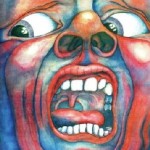
JM: Could you describe what was special about the chemistry of that first King Crimson band?
GL: It is very difficult to describe, because it was a very magical sort of band. It just felt as though it was effortless, you know? Things were happening almost under their own power. It just felt as though you were being carried along, really.
It was a very strange band because Robert and I went to the same guitar teacher when we were very young, and so we both had the same information, basically. So that was a strange thing, to be in a band with someone that knew exactly the same music as you did.
And the second strange thing was that Ian McDonald had never been in a rock band before. He came from the military. He was in a military brass band. So that was rather peculiar.
Then there was Mike Giles, who was an extraordinary drummer. He was sort of a very refined English gentleman. He was something like The Great Gatsby, 1920. He had a phenomenal ability to play drums that had independence between his left and right hand, and left and right foot. He could almost have four different time signatures running in parallel. Unbelievable.
It was a very incredible time, and the band was very innovative. We managed to come up with something different. And that was what we set out to do. We set out to be original.
JM: Well it certainly worked. You mentioned Robert Fripp, who is one of my favorite guitarists. Do you have any good Fripp stories that you’re willing to share?
GL: [laughs] Wow, I have hundreds of them.
Robert and I used to live together. We shared a flat in a place called Leinster Square in London. Robert had never been in a rock band before, and I’d been in lots, so he said to me, “What do you think about stage clothes?” So I thought, well, you know Robert isn’t a sort of rock and roller, really, he’s more like a college professor. I happened to know that Robert was fascinated by this violin player called Paganini. Paganini was actually a black magic guy. He was a very sinister character. He used to play his violin between two black candles and challenge people to play in competitions. He dressed all in black. So I thought we could dress Robert all in black, some sort of sinister thing.
We were living just around the corner from Portobello Road, which is a famous antique market in London, as well as being famous for the film Notting Hill. Anyway, so we went down to the antique market. We bought Robert all these black clothes, and a black top hat, and a cape. So that was that. He was going to make some stage outfit out of that.
That night I went into London to watch a band play. it was Spooky Tooth, actually, at The Marquee. So I got back late, and I got to the apartment, the front door, and I went in. Our apartment was on the first floor [in the US we’d call this the second floor], so I pushed the light to light up the stairs to go upstairs. But the light didn’t work, so I had to go up in the dark. I got halfway up the stairs, and I looked up and I noticed a candle being held under this face, like a horror story. And he had these horrible false teeth in, a top hat. It just looked like Jack The Ripper. And it was Robert who’d done himself up, powdered his face, put these false teeth in, taken out the lightbulb. He’d gone to all this trouble, and sat up waiting for me just to scare the shit out of me. Of course it gave him great pleasure.
Yeah, Robert and I lived together for some while, so we shared a lot in life together.
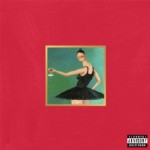
JM: I was surprised when I heard a sample of “21st Century Schizoid Man” in a song by Kanye West [“Power”]. What do you think of what he did with that?
GL: I don’t know. I think it kind of fits in a way. You know, he’s talking about the current day, and people having too much power. And in a way that’s what “Schizoid Man” was about. It does fit, it is appropriate in a way. It just goes to show you, really, how prophetic that song was when it was written. It kind of works, and I actually use it in the show.
JM: What were the origins of Emerson, Lake & Palmer?
GL: It was really a coincidence. King Crimson broke up. The night we played the Fillmore West in San Francisco at the end of our first tour, King Crimson broke up. Ian McDonald and Mike Giles decided that they no longer wanted to tour. They wanted to concentrate on making studio records. And that same night, when I went back to the hotel, I met Keith Emerson in the bar. We started talking, and he asked me about King Crimson. I told him what had happened, and he said, “Well, I’m coming to the end of my time with The Nice. How about maybe we could form a band together?” So that’s how it started.
JM: I understand there was a rumor of Jimi Hendrix also joining with the band. How close did that actually come to happening?
GL: The rumor happened because one of the people we talked to about playing drums was Mitch Mitchell. And Mitch suggested getting Jimi involved. When I talked to him, he said, “Look, I’ll speak to Jimi and maybe we’ll get together in a couple of weeks when he’s finished these shows with… I think it was The Band of Gypsys at the time he was playing with.
What happened was a few days later we got a call from a guy called Robert Stigwood, who was the manager of The Bee Gees and The Cream. He said, “Look, I’ve got the perfect drummer for you. It’s a guy called Carl Palmer. You really ought to check him out.” So we said OK, and set up an audition. Carl came along and we played together, and it was obvious instantly that the chemistry was right. He just fit, we fit together. The chemistry was complete. So that was it.
Of course, a few weeks later Jimi was found dead in his apartment. I don’t really it would have ever really worked. I mean, having two virtuosos [Hendrix and Emerson] in one band would probably have been a bridge too far.
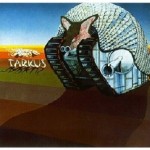
JM: I’m always amazed by the arrangements of the ELP songs. Just to be specific, take the song “Tarkus”. How did the arrangement come together for that?
GL: It began with Keith playing a 5/4 lick that went round and round on the piano. At first I was not too keen on it because I don’t like gratuitous time signatures, you know just for the sake of it. I mean, if you’ve got something like Dave Brubeck’s “Take Five”, that is a piece of music written in 5/4, right? Most people who play in odd time signatures are actually playing in 4/4 and then adding a beat. Well, that’s not clever. What’s clever is writing in an odd time signature. So when I heard the 5/4 thing, I kind of had an in-built prejudice against odd time signatures. But in the end, Keith believed that it would be good, and eventually we got on with it.
Actually, Tarkus really isn’t a concept album at all. It is just a collection of different music thrown together, really, by an album cover. You know, there was no overarching concept to Tarkus.
JM: You produced the early material for ELP. How would you describe yourself as a producer?
GL: [long pause] I’m relentless. That’s who I am. You know, I have to have it right. I love music. To me, it’s painting a picture in sound. And, you know, I’m dedicated to that. It’s not that I’m a great producer, it’s just that I care a lot about the music. I care about it being right. I won’t easily allow things that are not right to exist on a record. Because it just spoils the good work that is there. So it is, really, a search for perfection, I suppose.
JM: The early ELP material was engineered by Eddie Offord. What did he bring to the music?
GL: He was a great engineer. Really good. Really good. A fun guy to be in the studio with. Good ears, Eddie, really good ears. He would always be attentive. He would always be listening. And so if you missed something, Eddie would have picked it up.
JM: I understand that there’s an upcoming reissue campaign for the ELP albums. Could you tell me just a little bit about that?
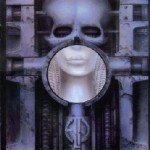
GL: I’m not really involved in it. I do know that it’s good quality. I don’t get involved in reissues much. I approve them, I approve them obviously. But, to be honest with you, once I’ve made a record it’s over. One thing that does get on my nerves a bit is when they keep reissuing the same record with different packaging. Why do that, you know?
So this one, I do believe, they’ve really gone out on a limb to produce a very, very good quality version of these records. Remixed, remastered, 5.1 [surround sound], added bonus tracks. They’ve gone back in the vaults. They’ve dug up outtakes. They’re really gone to town on it. So I do believe it’s good. I do believe the things are going to be good.
JM: I have to ask. ELP is often mentioned as the sort of band that punk rock was a reaction to. For the record, I happen to be a fan of both prog rock and punk rock, which I think is easier to be nowadays. How do you view the relationship between ELP and punk rock? What is your take on when that all happened?
GL: Well, ELP was music, punk rock was fashion. Punk rock was just one of those other musical genres that had no musical or cultural foundation. It was just a creation of the media. I could give you fifty names: Grunge, Garage, New Wave… They’re all the same. They’re inventions by the media trying to create a little more cash. There’s no musical foundation in punk rock.
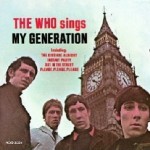
You want to talk about punk rock, talk about The Who. They’re a punk band. That’s a real punk band. The Sex Pistols were a joke. Greasing your hair up, putting a safety pin through your lip doesn’t make you anything other than a clown. There was no music involved. There was no credence to the music. There was no heart to it. There was no soul to it. There was no meaning to it, other than some crass attempt at, sort of, what would you call it, revolution? I mean, really, it was childish. It hasn’t stood the test of time.
The fashion was interesting. You know, wearing safety pins through your nose, that sort of self-defacing trend. Deface your own beauty, wear ugly boots, wear trousers hanging down around your ass. All that sort of stuff. That brought about that sort of anti-fashion, I would call it.
I can’t think of anything good to say about it. If that wasn’t what ended progressive music… I mean, the way it worked in the music business was, originally music was coming out on vinyl records and CDs, and it was something you would buy and take home. You’d share with your friends. You’d sit around, you’d listen to an album, you’d look at the album sleeve, you’d chat about it and enjoy it.
Music then changed, when the Sony Walkman got invented it became a solitary experience. A lonely experience. And at the same time the music business became ever greedy, and it changed from being run and controlled by visionaries, entreprenuers like Amhet Ertegen, Jerry Moss of A&M, people like that, and it got taken over by accountants and lawyers. And the only thing accountants and lawyers know about is the bottom line. And the bottom line to them is what has been successful in the past. So the formula is, if the people like beans, give them more beans. And that was the end of originality, really, and the start of creating genres. I know, let’s create another genre? No, no good. Because it was phony. And that was the beginning of a phony era in music.
The final dagger in the back, of course, was the internet, which made the protection of intellectual copyright impossible.
JM: What advice would you give to an aspiring musician?
GL: Make music for yourself. When you’re making music for other people it becomes complicated. Making music that you like is simpler, and chances are someone else will like it as well.

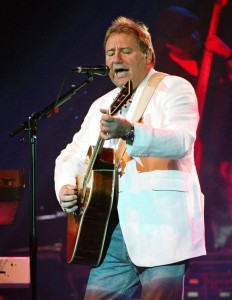
Great Interview! I like hearing more of those Fripp stories! And I’ve always wondered what the real story was with ELP and Hendrix…cool!!
Plus, I agree with Greg on sex pistols style punk…it was really all a social revolution/media thing but the music and musicianship was shit. The Clash were fairly good players and soulful singers though I thought.
Greg is so right-on with his comments on the progress of music, and punk rock. Everything has become so hateful and impersonal. Music used to take me to a place where I could be free and happy. Now the music is filled with hate and swearing, not something I’d let youngsters listen to. Fortunately we still have some musicians that CARE about the Music and how it affects the listener.
This is a great interview which reflects Greg’s great honesty,and perfectionism. He really gives a damn, and that is precisely why I have always enjoyed his music in the first place.If you listen to his songs, you will hear that coming across loud and clear.
John Lennon was no different in this regard.
Great interview.
I think that’s a fabulous photo of him, as well.
Well done, Lee.